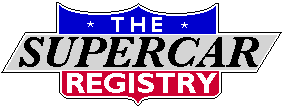

Dedicated to the Promotion and Preservation of American Muscle Cars, Dealer built Supercars and COPO cars. |
|
|||||||
| Register | Album Gallery | Thread Gallery | FAQ | Members List | Calendar | Become a Paid Member | Search | Today's Posts | Mark Forums Read |

|
|
|
Thread Tools | Display Modes |
|
|
|
#1
|
|||
|
|||
|
Wow, I finally stopped by to read this post. 12 pages of comments on a Yenko Stinger couldn't be ignored. Two hours later, I must admit I found the whole thing to be quite informative and entertaining.
I'm going to come down on the side of considering the $400-converted Douglas cars "true". If they were still $50K cars I'd consider their values equivalent. Now that we're talking six figures, it gets blurry. At those lofty prices, you get into issues of perception and owner's egos. Looking at the cars from a business perspective, the converting-at-the-selling-dealer model makes perfect sense. Given the simple nature of the '69 "conversion" of stripes and emblems, its a huge waste of time and money to ship cars from Detroit to Cannonsburg, then back out across the country. Shipping has never been free, and the more loading and handling that occurs only increases the risk of damage. The only reason Don Yenko had to keep cars in his pipeline was to keep himself in the middle, and to ensure that he was compensated for his role in developing and promoting these great cars. If he could have trusted his supercar network to not go around him, but instead order and outfit cars to his specifications and pay him a proper royalty, I don't see why this model wouldn't have worked just fine everywhere. But without control of the COPO ordering process, this obviously wasn't a viable solution for him. Describing Yenko as a manufacturer is fine with me when talking in the context of '65-'67. I don't think anyone could have had an easy time being a "manufacturer" with the heightened restrictions of '68-on. Shelby threw in the towel on Cobra production, and established makers of European cars like Austin-Healy's and the like couldn't economically retool them to meet '68 specs. Yenko ran into that with several of his early '70's engine conversion projects, as stated earlier. The '69 Camaros and '70 Deuces were GM cars that he orchestrated, but didn't manufacture, per se. I was really tuned up for the idea of a Douglas Yenko in other colors with good options. Then Stefano writes that they all had 711 standard interiors [img]/ubbthreads/images/icons/frown.gif[/img] . How could you take the opportunity order up a '69 Camaro for max appeal and leave the taxicab seats and door panels? I applaud eveyone in keeping the discussion (mostly) positive. If you take this too far, it'll be like the Corvette hobby. It happened to the Mopar guys (They went from greasy baseball hats and "Big Johnson" T-shirts to guys wearing Dockers asking me if the glass is date coded correctly...) |
|
#2
|
||||
|
||||
|
Stefano,
If you are going to reduce this discussion to 'post-count', then I'm out of it [img]/ubbthreads/images/icons/frown.gif[/img] I can assure you this, you will never convince me that the cars Douglas (sp) Chev. sold as Yenko's are truly Yenko SportsCars. I base my position on the paperwork trail from an order form from Yenko to GM, GM's assigned QLL order #, an MSO to Yenko Chev. and then a delivery schedule that dealer transfered the cars to a participating dealer. Sorry about my spelling, that was a cheap shot!
__________________
Marlin 70 Yenko Nova-350/360, 4speed M21, 4.10 Posi (Daddy's Ride) 69 SS Nova-396/375hp, 4speed M20, 3.55 Posi (Benjamin's Ride) 67 RS Camaro-327/250hp, 2speed Glide, & 3.08 Open (Danny's Ride) |